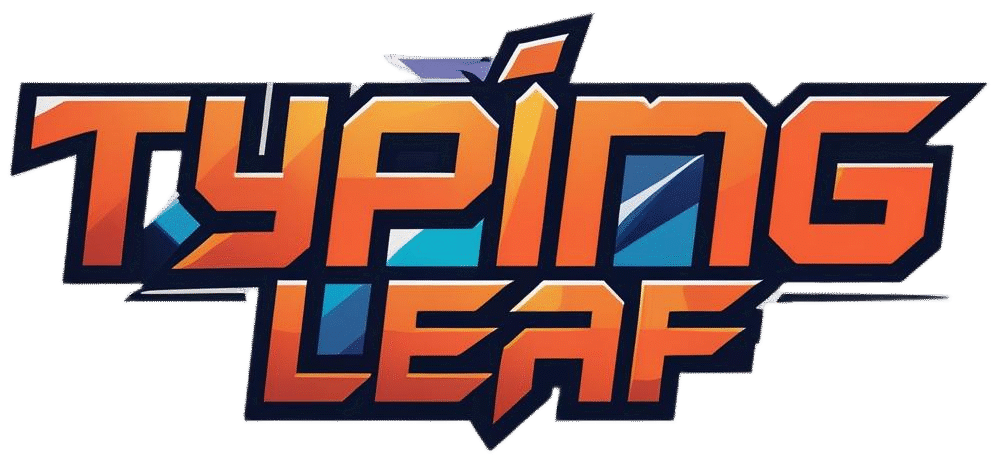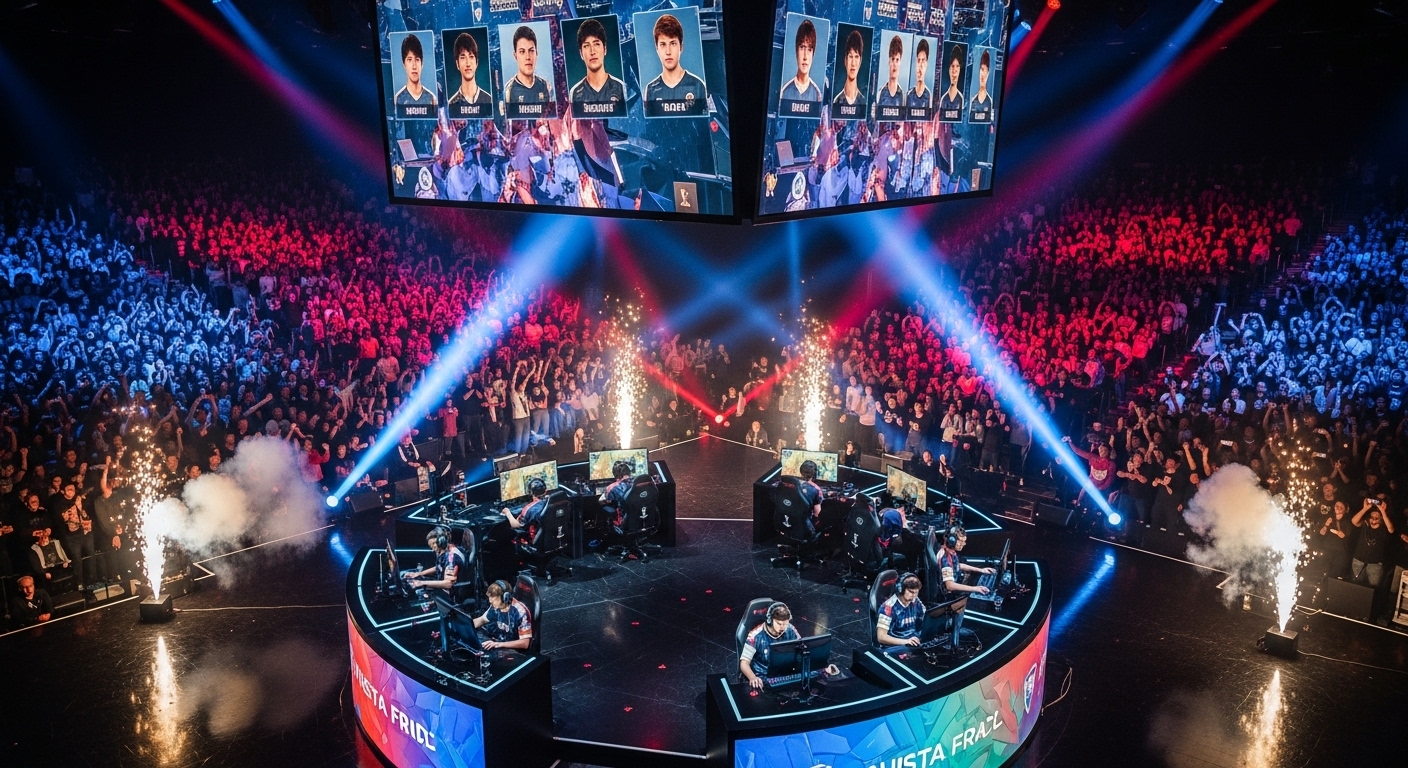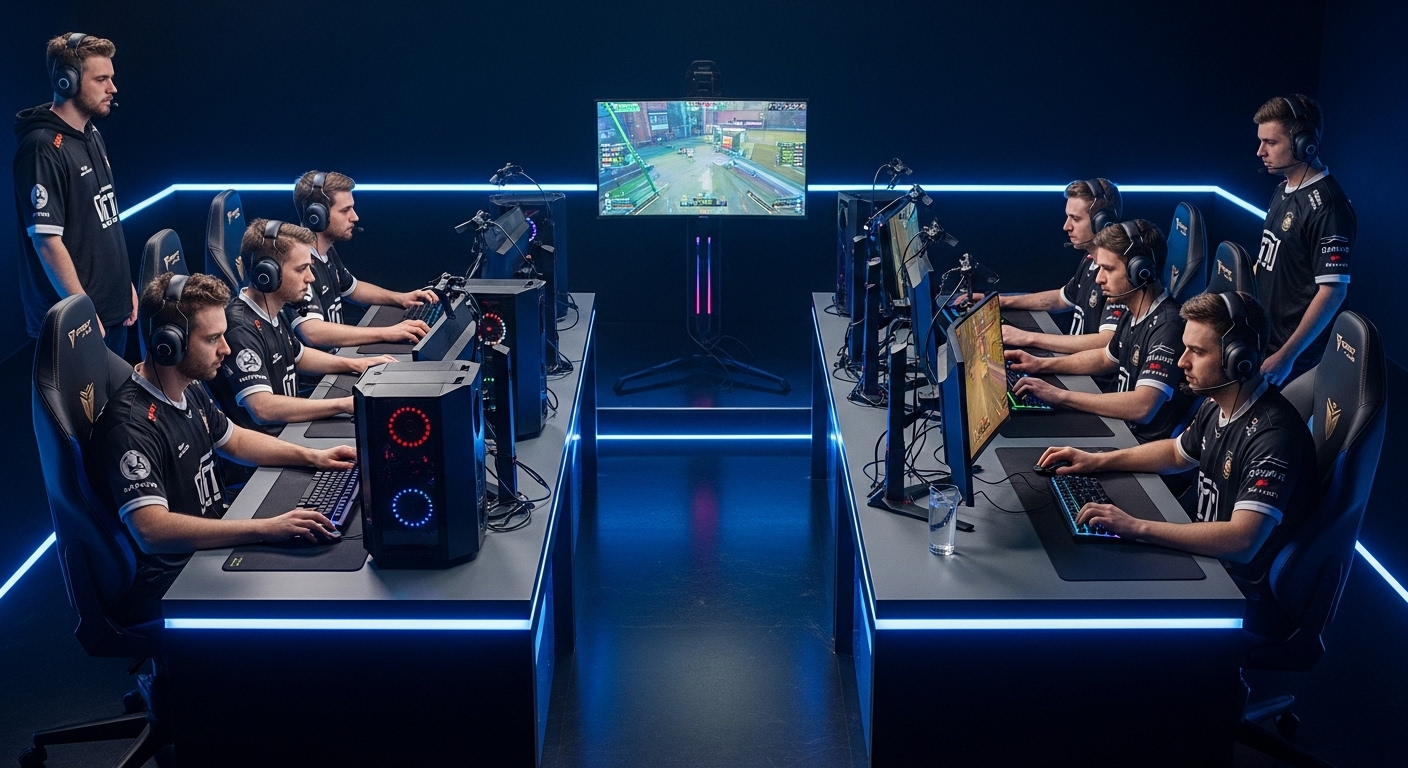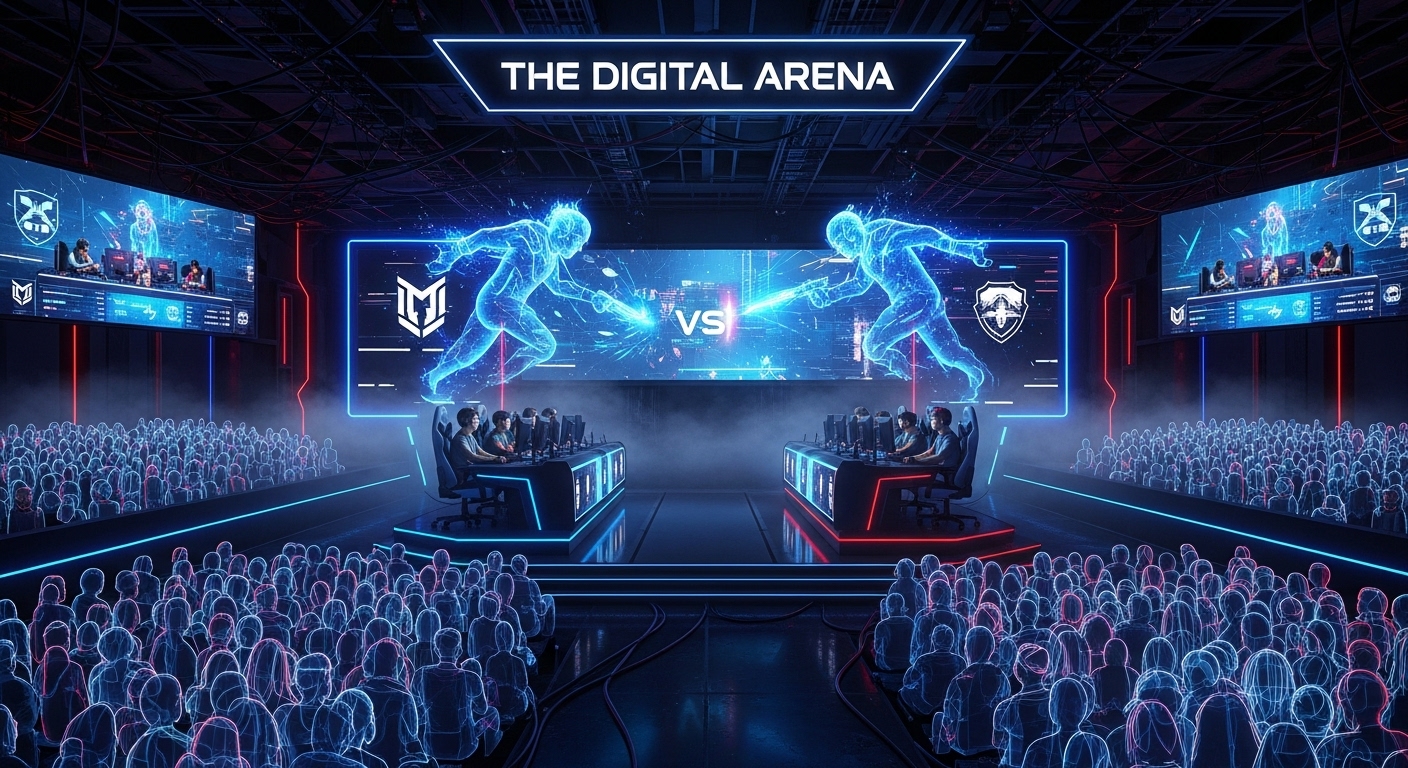Introduction
In the realm of mobile gaming, few titles have had as significant an impact as Mobile Legends: Bang Bang. Developed and published by Moonton, the game has become a cornerstone of mobile esports, particularly in Southeast Asia. With its engaging gameplay, fast-paced battles, and accessibility on smartphones, Mobile Legends has not only dominated charts but also reshaped the esports landscape in the region. The game’s journey from a casual multiplayer experience to an esports powerhouse is nothing short of remarkable. It has united millions of players, built professional careers, and established Southeast Asia as a global leader in mobile esports.
The Birth of Mobile Legends and Its Rapid Rise
When Mobile Legends: Bang Bang launched in 2016, the gaming world was already seeing a shift toward mobile platforms. Smartphones were becoming more powerful, and players were seeking competitive experiences on the go. Moonton saw an opportunity to bring the Multiplayer Online Battle Arena (MOBA) genre—previously dominated by PC titles like League of Legends and Dota 2—to mobile devices.
The game’s simple controls, short match durations, and familiar mechanics made it accessible to both newcomers and veterans of the genre. Players could experience intense 5v5 battles that tested their reflexes, teamwork, and strategy without the need for a high-end gaming setup. Within months, Mobile Legends attracted millions of downloads, particularly from countries like Indonesia, the Philippines, Malaysia, and Thailand.
Its success was fueled by its free-to-play model and strong social features. The in-game communication tools and ranking systems encouraged competition among friends and local communities, helping the game spread rapidly through word of mouth. Before long, Mobile Legends became more than just a popular mobile game—it became a cultural phenomenon.
Southeast Asia: The Heart of Mobile Legends Esports
While Mobile Legends gained popularity worldwide, it was Southeast Asia that truly embraced it as an esport. The region’s gaming culture, infrastructure, and enthusiasm for mobile gaming created the perfect ecosystem for the title to flourish competitively. For many players in Southeast Asia, mobile gaming offered accessibility that PC or console gaming could not. Smartphones were affordable, mobile internet was widely available, and players could compete anytime, anywhere.
Countries such as Indonesia, the Philippines, and Malaysia quickly became central hubs for Mobile Legends esports. Local tournaments began sprouting across cities, supported by gaming cafés, sponsors, and tech companies. Moonton capitalized on this momentum by launching official leagues, beginning with the Mobile Legends: Bang Bang Professional League (MPL).
The Birth of MPL: A Game-Changer for Mobile Esports
The launch of the MPL marked a turning point in Mobile Legends history. It provided a structured, professional platform for teams to compete regularly, with significant prize pools and sponsorship opportunities. Each participating country in Southeast Asia eventually developed its own MPL league—such as MPL Indonesia, MPL Philippines, and MPL Malaysia/Singapore—allowing regional talent to shine on a professional stage.
The MPL system introduced seasonal competitions, playoffs, and championships, giving fans ongoing narratives to follow. Teams built loyal fanbases, players became celebrities, and the league broadcasts reached millions of viewers online. The MPL Indonesia league, in particular, became one of the most-watched esports events in the world, consistently breaking viewership records on platforms like YouTube and Facebook Gaming.
The professionalism of the MPL helped elevate the reputation of Mobile Legends as a serious esport. Teams began training in boot camps, analyzing replays, and developing sophisticated strategies akin to traditional sports. With each new season, the competition grew fiercer, and the production quality of the events reached international standards.
The Rise of Esports Heroes: Legends Born from Mobile Legends
One of the most fascinating aspects of Mobile Legends esports is the rise of individual stars who have become icons in the gaming community. Players like OHEB, KarlTzy, Lemon, and Albert have achieved legendary status for their skill, leadership, and ability to perform under pressure. These players are not just competitors—they are role models for millions of aspiring gamers across Southeast Asia.
Teams such as Blacklist International, EVOS Legends, ONIC Esports, and Bren Esports have carved their names into esports history through unforgettable performances. Their rivalries have created some of the most thrilling moments in competitive gaming. Fans tune in not only to watch their favorite teams win but also to witness the emotional stories of perseverance, teamwork, and redemption that unfold throughout the tournaments.
The rise of these esports heroes has also changed public perception of gaming as a career. Once dismissed as a pastime, esports is now viewed as a legitimate profession. Many of these players earn sponsorships, salaries, and endorsements, while also inspiring the next generation to pursue their dreams in gaming.
The Role of Community and Fan Engagement
A major factor in Mobile Legends’ dominance is the strong bond between the community and the game. Fans are not just spectators—they are active participants. Social media platforms are filled with fan art, highlight reels, and memes celebrating every victory and defeat. Local fan clubs organize viewing parties, and communities rally around their favorite teams during international competitions.
Moonton has also played a vital role in nurturing this connection. The company frequently engages with fans through updates, events, and community tournaments. They understand that esports thrives when fans feel involved and valued. Seasonal skins, anniversary celebrations, and collaborations with popular brands and celebrities have kept the game exciting and culturally relevant.
The connection between the community and the game has turned Mobile Legends tournaments into massive celebrations. Events like the MPL playoffs and the M-Series World Championship are not just about competition—they are about unity, passion, and pride. For many fans, supporting their national team in Mobile Legends feels as significant as supporting a national football or basketball team.
The M-Series World Championships: Global Glory for Southeast Asia
The Mobile Legends: Bang Bang M-Series World Championship is the pinnacle of the game’s esports scene. This global tournament brings together the best teams from around the world to compete for the title of world champion. The inaugural event, held in 2019, set the stage for Southeast Asia’s dominance on the global scene.
Teams from the region have consistently performed exceptionally well, often taking home the championship trophy. Bren Esports from the Philippines won the M2 World Championship in 2021, while Blacklist International claimed the M3 title later that same year. Their victories showcased not only individual skill but also the tactical depth and teamwork that define Southeast Asian Mobile Legends gameplay.
These international triumphs boosted the game’s prestige and cemented Southeast Asia’s reputation as the global leader in mobile esports. The M-Series has since grown in scale, featuring elaborate stage designs, high production values, and millions of online viewers from around the world.
Esports Infrastructure and Economic Impact
The growth of Mobile Legends esports has had a substantial economic and cultural impact in Southeast Asia. The game has spurred the development of esports organizations, production companies, and sponsorship networks across the region. Local governments and educational institutions have begun recognizing esports as a viable career path, integrating it into programs and events.
Cities like Jakarta, Manila, and Kuala Lumpur have hosted major Mobile Legends tournaments, drawing large crowds and boosting local economies. From hotels to merchandise vendors, the ripple effect of esports events has been felt far beyond the gaming community. The esports industry has created jobs in broadcasting, event management, coaching, content creation, and marketing—all fueled by the popularity of Mobile Legends.
Sponsors and brands have eagerly jumped on board, recognizing the value of connecting with a young, passionate, and tech-savvy audience. Major tech companies, mobile providers, and consumer brands frequently collaborate with teams and tournaments, driving even more growth in the sector.
Training and Professionalism: The Evolution of Esports Teams
The evolution of Mobile Legends esports teams mirrors the professionalization of traditional sports. Top teams now operate like well-organized sports clubs, complete with managers, analysts, nutritionists, and coaches. Players undergo rigorous training schedules, focusing on strategy, coordination, and physical well-being.
Training houses or boot camps have become common, where players live and practice together for months leading up to tournaments. These facilities are equipped with high-end devices, strong internet connections, and performance tracking systems. The aim is to create an environment that maximizes teamwork and consistency.
Mental conditioning has also become a key part of training. Esports athletes are taught to handle pressure, maintain focus, and recover from setbacks—skills that are essential in high-stakes competition. The emphasis on holistic development reflects how seriously the region now treats esports as a profession.
Cultural Impact and Representation
Beyond competition, Mobile Legends has played a significant role in shaping cultural identity across Southeast Asia. The game incorporates elements of regional folklore and mythology through its hero designs and skins. Characters inspired by Southeast Asian legends, such as Lapu-Lapu from the Philippines, resonate deeply with local players.
The game’s success has also fostered a sense of pride. For many, seeing Southeast Asian teams dominate the global stage is a source of inspiration and cultural representation. It highlights the region’s creativity, resilience, and passion for gaming.
Esports events often feature local music, dances, and languages, blending entertainment with cultural celebration. This fusion of culture and competition has made Mobile Legends more than just a game—it has become a symbol of regional unity.
The Role of Technology and Accessibility
Technology has been a driving force behind Mobile Legends’ dominance. Unlike PC-based esports that require expensive setups, Mobile Legends only needs a smartphone and an internet connection. This accessibility has democratized esports participation, allowing players from rural areas and diverse backgrounds to compete at high levels.
Moonton has continually optimized the game for various devices, ensuring smooth gameplay even on mid-range smartphones. The regular updates, low latency, and server stability have made the experience enjoyable for millions of players. The widespread use of affordable 4G and 5G networks has further fueled its growth by enabling seamless online play.
Challenges and Controversies
Despite its immense success, Mobile Legends esports has not been without challenges. Issues such as player burnout, cheating, and match-fixing scandals have occasionally surfaced, prompting stricter regulations from tournament organizers. Maintaining integrity and fairness in a rapidly growing competitive environment remains an ongoing battle.
The game has also faced fierce competition from other mobile titles like PUBG Mobile, Free Fire, and Arena of Valor. However, Mobile Legends has managed to stay ahead by constantly evolving its gameplay, introducing new heroes, and maintaining strong community engagement.
Another challenge lies in ensuring the sustainability of the esports ecosystem. With so many new teams and tournaments emerging, balancing the competitive environment to ensure fair opportunities for all remains crucial.
The Future of Mobile Legends Esports
Looking ahead, the future of Mobile Legends esports in Southeast Asia appears brighter than ever. Moonton continues to expand its reach with more international tournaments, regional collaborations, and technological innovations. The MPL leagues have become templates for other regions, inspiring new competitive ecosystems in South Asia, the Middle East, and Latin America.
The introduction of women’s leagues and youth development programs signals a commitment to inclusivity and long-term growth. These initiatives are helping to nurture new talent and ensure that the Mobile Legends esports scene remains dynamic and diverse.
As mobile technology advances, the quality of competition will only improve. Better devices, faster internet, and enhanced broadcast production will elevate the viewing experience for fans and the performance level for players.
Conclusion
Mobile Legends: Bang Bang has achieved what few games have ever managed—it has united an entire region under one competitive banner. From grassroots tournaments in local cafés to world championships watched by millions, the game has transformed Southeast Asia into a global esports powerhouse.
Its success lies not only in its gameplay but in its ability to connect people, foster communities, and celebrate cultural identity. It has turned everyday players into global icons, inspired countless careers, and demonstrated that mobile gaming can rival even the biggest PC and console esports scenes.
As the world continues to embrace mobile esports, Mobile Legends stands as a testament to what passion, accessibility, and innovation can achieve. Southeast Asia’s love for the game has made it more than just an esport—it is a movement, a symbol of progress, and a shining example of how digital entertainment can bring people together in the spirit of competition and pride.



